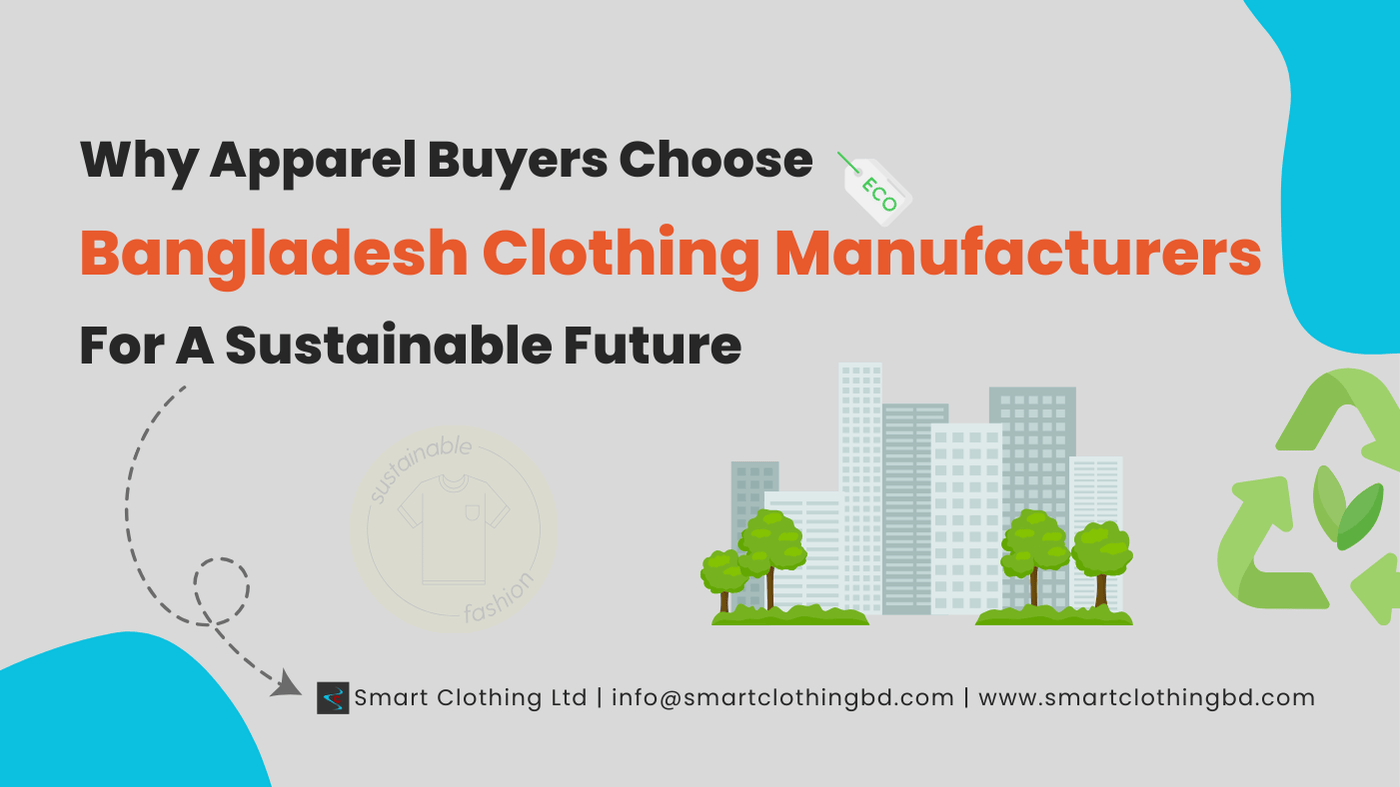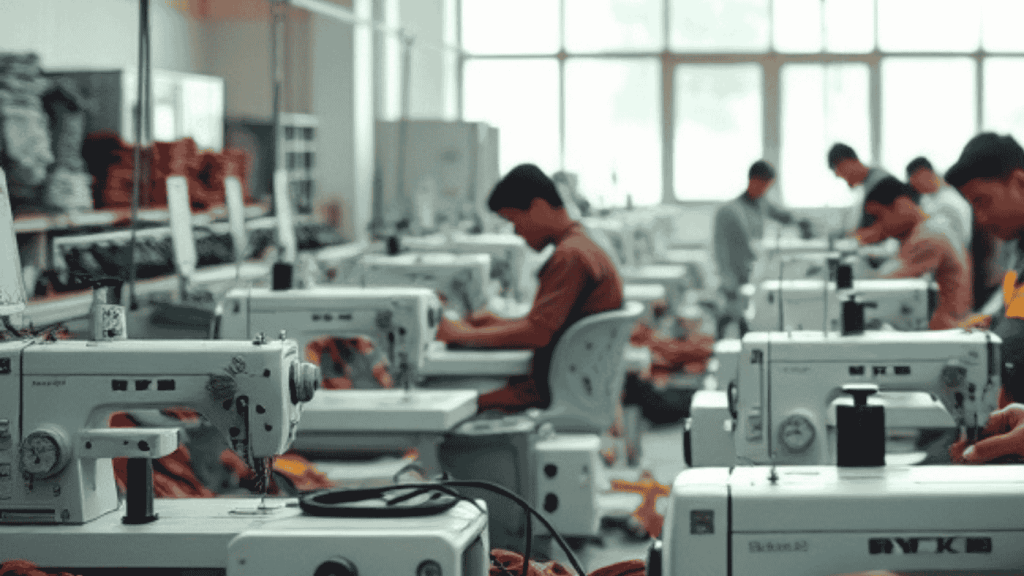
Bangladesh is a powerhouse in the global apparel and fashion industry. Known as one of the world’s largest clothing manufacturing hubs, it caters to some of the biggest names in fashion, as well as small-scale boutique brands. With over 80% of the country’s export revenue coming from apparel, Bangladesh’s clothing manufacturing industry is both an economic lifeline and a global leader.
Here we explore the history, current trends, future potential, and challenges of Bangladesh’s clothing manufacturers. It also dives into how its sustainable practices and innovative solutions are shaping the industry’s future.
The History of Bangladesh Clothing Manufacturing
Bangladesh’s clothing manufacturing story began in the late 1970s and peaked in the 1980s with the establishment of several garment factories. By the 1990s, the industry emerged as a significant player in the global apparel trade, benefiting from an affordable workforce and government support.
Today, the industry remains the backbone of the country’s economy:
- It contributes around 80% to Bangladesh’s total export earnings.
- Notable hubs like Dhaka, Chittagong, and Narayanganj are renowned worldwide for their skilled labor and factory output.
This growth has made Bangladesh the go-to location for overseas buyers looking for cost-efficient yet high-quality manufacturing. Whether partnering directly with manufacturers or working through buying houses, many brands tap into the expertise of Bangladesh’s thriving apparel industry.
Reasons Why Apparel Buyers Choose Bangladesh for Custom Clothing
Bangladesh’s clothing manufacturers have kept pace with global trends while retaining their advantages like competitive pricing and low minimum order quantities (MOQs). Here are some of the key trends dominating the industry:
1. Custom and Private Label Manufacturing
Bangladesh excels in custom and private label manufacturing, offering tailored solutions for global brands. Whether it’s baby clothes, activewear, or women’s apparel, manufacturers can cater to niche markets with precision. Buyers appreciate the flexibility to incorporate their brand identity into designs while benefitting from competitive production costs.
2. Demand for Ethical and Sustainable Clothing
Ethical fashion is no longer a preference—it’s a necessity. Buyers from Europe and North America increasingly seek eco-friendly and sustainable production methods. To meet demand, Bangladesh clothing manufacturers have embraced:
- Organic cotton production
- Low-impact dyeing techniques
- Water recycling systems
These practices ensure a responsible approach to manufacturing while appealing to conscious consumers.
3. Competitive Pricing and MOQ Advantages
Bangladesh manufacturers remain unmatched in providing cost-effective production without compromising on quality. This is one of the reasons even small-scale buyers prefer working with clothing manufacturing companies in Bangladesh—they’re often able to meet lower MOQ requirements, making partnerships accessible and affordable.
4. Growing Use of FOB Pricing and OEM Clothing
Free on Board (FOB) pricing and Original Equipment Manufacturing (OEM) approaches enhance flexibility for buyers. FOB pricing allows buyers to gain better control of shipping logistics, improving the overall supply chain experience. Many companies in Bangladesh specialize in OEM, offering streamlined production processes for global supply chains.
5. Technological Advancements
The adoption of modern machinery and automation systems has elevated production quality. From automated cutting machines to AI-powered supply chain management, Bangladesh clothing manufacturers are investing in technology to meet tight deadlines and maintain premium standards.
The Future of Bangladesh Clothing Manufacturers

The outlook for Bangladesh clothing manufacturing companies is intrinsically tied to innovation and sustainability. Here’s how the future looks:
1. Sustainability as a Key Differentiator
Sustainability has become a driving force for the industry. By adopting renewable energy, organic fabrics, and eco-friendly processes, manufacturers are gaining a competitive edge in the fashion-conscious markets of Europe and North America.
2. Innovation and R&D Improvements
Factories are increasingly investing in research and development to innovate new materials like biodegradable fabrics and to explore 3D printing for apparel production. This emphasis on R&D strengthens Bangladesh’s position as not just a cost-effective hub but also a source of premium, innovative products.
3. Diversification of Offerings
Manufacturers are moving beyond basic apparel, exploring premium markets and technical textiles catering to industries like healthcare and sports. This diversification adds sophistication to what Bangladesh clothing manufacturers can offer prospective buyers.
4. Upskilling the Workforce
Upskilling programs ensure the workforce is capable of producing high-end and luxury items. Government initiatives and private training programs are being implemented to improve skills and expertise.
Challenges and Solutions
Despite its success, the industry faces challenges such as wage concerns, infrastructure gaps, and the need to meet international compliance standards. However, certifications like WRAP (Worldwide Responsible Accredited Production) and OEKO-TEX are helping manufacturers build trust with global buyers, demonstrating their commitment to quality and ethical production.
The Role of Sustainable Practices in Enhancing Global Position
Sustainability is no longer just a buzzword—it’s essential to stay competitive. Manufacturers leveraging eco-friendly practices not only reduce operational costs but also strengthen relationships with leading buyers. Many buying houses, like Smart Clothing Ltd, play a critical role in promoting sustainable partnerships between overseas buyers and ethical suppliers.
For example:
- Garment factories using renewable energy experience lower utility costs while meeting buyer expectations.
- Eco-friendly practices ensure long-term partnerships with global fashion brands that prioritize sustainable sourcing.
Wrapping Up
Bangladesh’s clothing manufacturers have grown remarkably, from humble beginnings to becoming global leaders in the apparel industry. Their commitment to sustainability, innovation, and affordability ensures that they remain a preferred destination for brands worldwide.
If you’re a fashion entrepreneur or industry professional, Bangladesh offers unmatched opportunities for sourcing high-quality, cost-efficient apparel. Looking for guidance? Start partnering with SmartClothingBD, experts in sustainable sourcing and buying house services, to get started. With the right support, your vision—and Bangladesh’s expertise—can create a truly sustainable future for fashion.